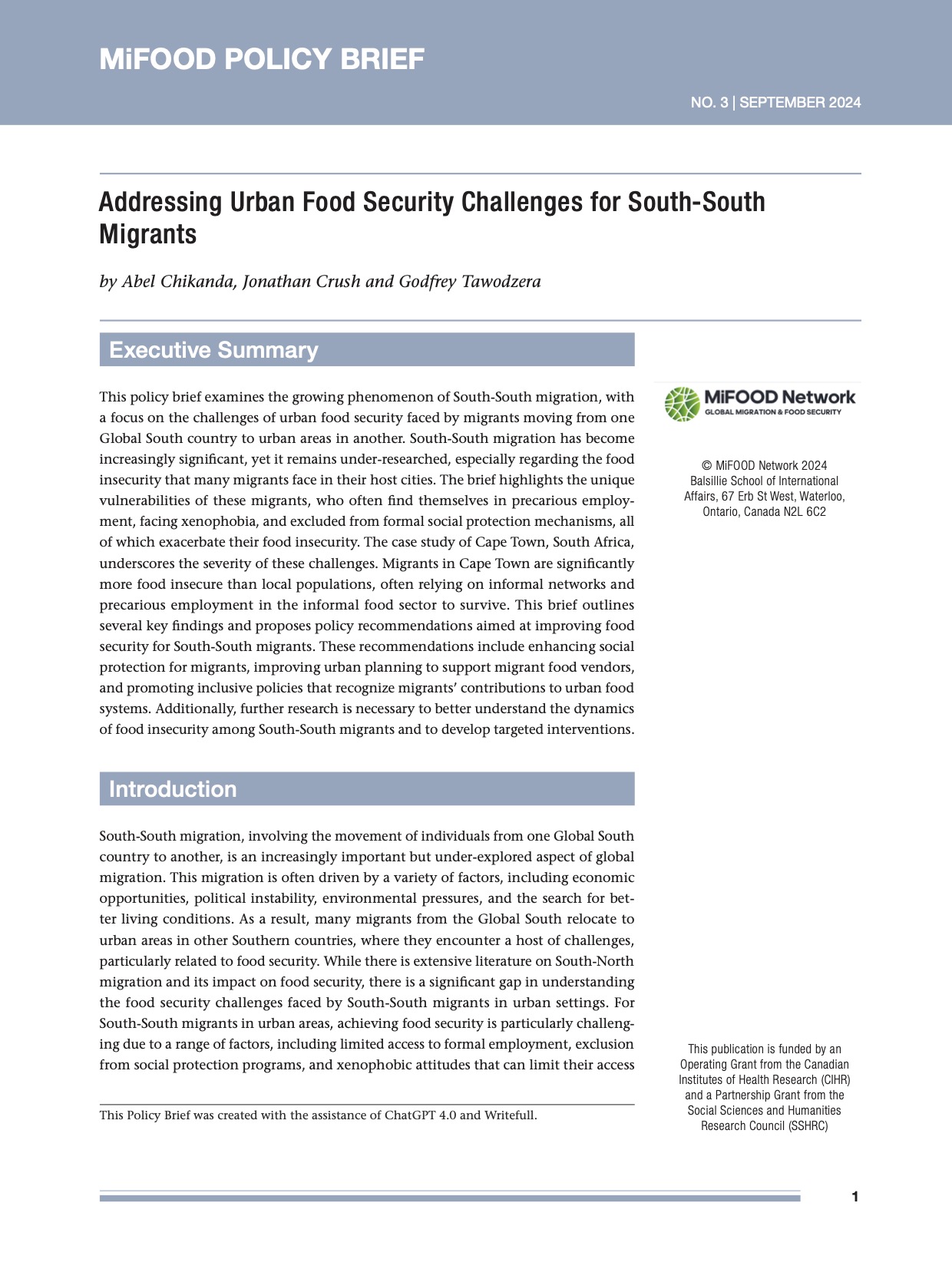This policy brief examines the growing phenomenon of South-South migration, with a focus on the challenges of urban food security faced by migrants moving from one Global South country to urban areas in another. South-South migration has become increasingly significant, yet it remains under-researched, especially regarding the food insecurity that many migrants face in their host cities. The brief highlights the unique vulnerabilities of these migrants, who often find themselves in precarious employment, facing xenophobia, and excluded from formal social protection mechanisms, all of which exacerbate their food insecurity. The case study of Cape Town, South Africa, underscores the severity of these challenges. Migrants in Cape Town are significantly more food insecure than local populations, often relying on informal networks and precarious employment in the informal food sector to survive. This brief outlines several key findings and proposes policy recommendations aimed at improving food security for South-South migrants. These recommendations include enhancing social protection for migrants, improving urban planning to support migrant food vendors, and promoting inclusive policies that recognize migrants’ contributions to urban food systems. Additionally, further research is necessary to better understand the dynamics of food insecurity among South-South migrants and to develop targeted interventions.

